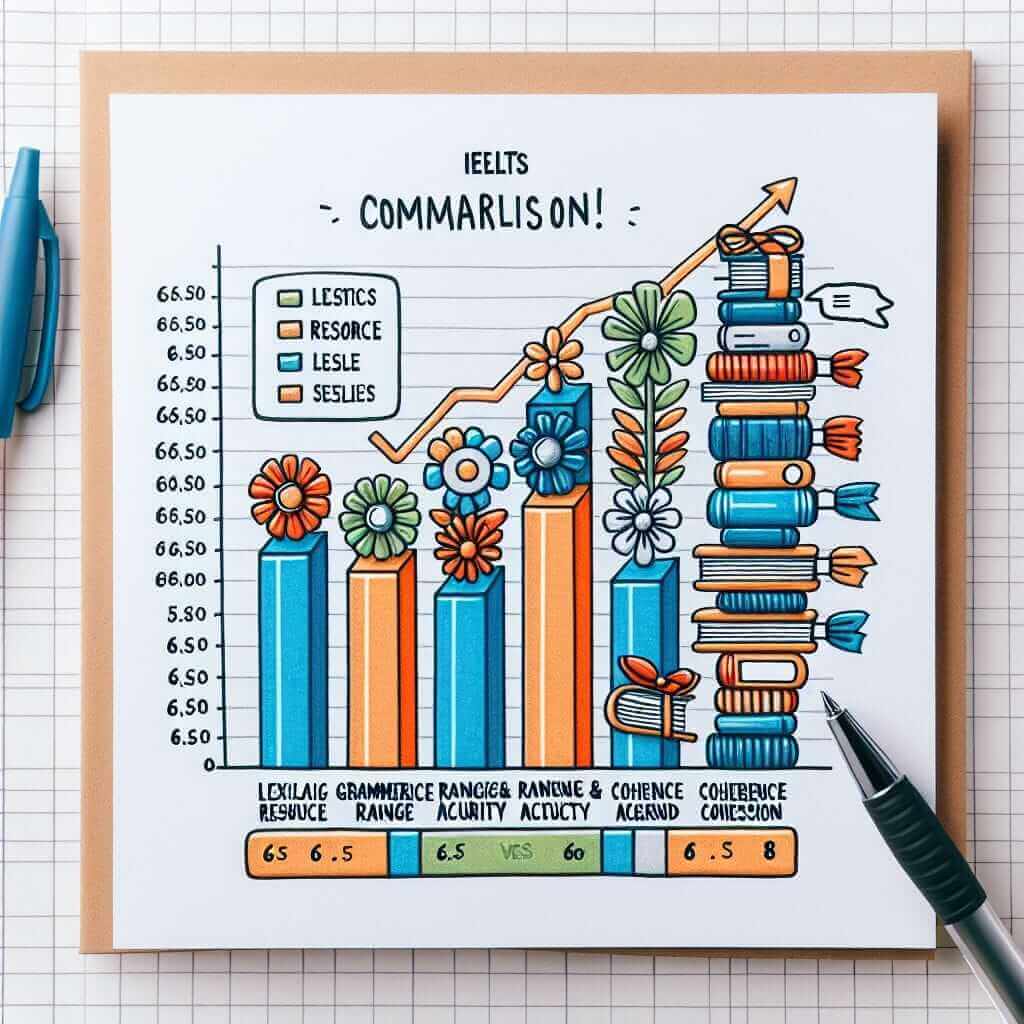Introduction
Achieving an IELTS score of 6.5 is commendable, showcasing a strong foundation in English. However, aiming for an 8 requires focused effort and a strategic approach. This leap demands mastery over complex grammar, sophisticated vocabulary, and nuanced communication skills.
As an IELTS instructor with over 20 years of experience, I’ve witnessed countless students successfully navigate this challenging yet achievable transition. This guide will delve into proven strategies and practical tips to help you elevate your IELTS score from 6.5 to the coveted 8.
Understanding the Gap: 6.5 vs. 8
While a 6.5 demonstrates effective communication, an 8 signifies near-native fluency. This distinction is evident in:
- Lexical Resource: An 8 requires a wider range of vocabulary used with precision and flexibility, including idiomatic language and less common vocabulary.
- Grammatical Range and Accuracy: Complex grammatical structures are used with minimal errors, showcasing a sophisticated grasp of English grammar.
- Coherence and Cohesion: Ideas are linked seamlessly, demonstrating a sophisticated understanding of discourse markers and cohesive devices.
- Pronunciation: Speech is natural and clear, with accurate intonation and stress patterns, reflecting a native-like flow.

Bridging the Gap: Effective Strategies
1. Enrich Your Vocabulary
- Active Reading: Engage with advanced texts like editorials, academic journals, and literary works. Note down unfamiliar words, their meanings, and usage in various contexts.
- Word Families: Learn different forms of a word (e.g., analyze, analysis, analytical) to enhance your fluency and versatility in speaking and writing.
- Contextual Learning: Instead of rote memorization, understand how words are used in different contexts to convey specific meanings.
2. Master Complex Grammar
- Identify Your Weaknesses: Analyze your past writing and speaking performances to identify recurring grammatical errors. Focus on areas needing improvement.
- Targeted Practice: Utilize grammar books, online exercises, and IELTS practice tests to specifically target your weaknesses and solidify your understanding.
- Complex Structures: Practice using a variety of complex sentence structures like conditional clauses, relative clauses, and passive voice accurately and appropriately.
3. Enhance Coherence and Cohesion
- Discourse Markers: Master the use of discourse markers like ‘however,’ ‘moreover,’ ‘in addition,’ ‘on the other hand’ to create logical flow and connections between ideas.
- Paragraphing and Structure: Practice structuring your essays and spoken responses logically, with clear topic sentences and supporting details in each paragraph.
- Referencing: Use pronouns, synonyms, and other referencing techniques to avoid repetition and create smooth transitions between sentences and paragraphs.
4. Refine Your Pronunciation
- Active Listening: Engage in active listening by paying attention to the pronunciation and intonation patterns of native speakers in movies, podcasts, and documentaries.
- Record Yourself: Regularly record your speaking practice and analyze it for areas of improvement in pronunciation, intonation, and fluency.
- Seek Feedback: Ask an experienced IELTS instructor or a native English speaker to provide feedback on your pronunciation and highlight areas that need attention.
Illustrative Examples from IELTS
Writing Task 2: Discuss the advantages and disadvantages of globalization.
Speaking Part 3: Do you think technology has made our lives easier or more complex?
By applying the strategies outlined and consistently engaging in targeted practice, you can confidently strive for and achieve an IELTS band score of 8. Remember, dedication, perseverance, and the right guidance are your allies in this journey. Good luck!